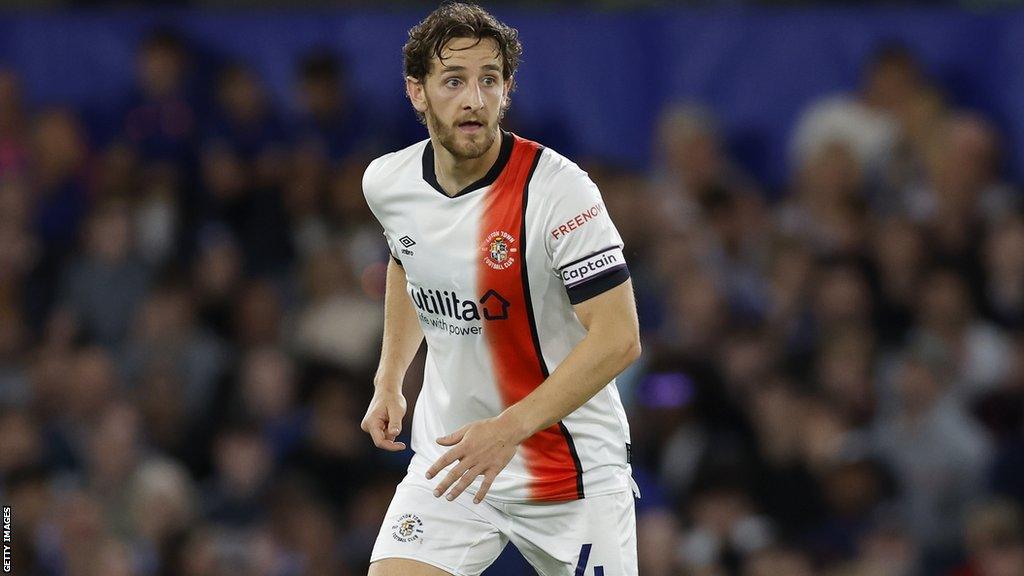Tom Lockyer: Luton manager Rob Edwards says captain's training ground visit a 'special moment'
- Published

Tom Lockyer has scored one goal in 15 appearances in all competitions for Luton this season
Luton manager Rob Edwards said Tom Lockyer's return to the training ground for the first time since his cardiac arrest was a "special moment".
Lockyer, 29, visited team-mates and staff at Luton's Brache HQ on Monday.
He spent five days in hospital and had an Implantable Cardioverter Defibrillator (ICD) device fitted following his on-pitch collapse during a game at Bournemouth on December 16.
"He's an unbelievably brave man," said Edwards.
"It was amazing to see him back. We had a really good morning seeing him around the place.
"We handed out the debut Premier League balls with [former managers] John Still and Mick Harford.
"It was a nice presentation; it was a special moment and great to see.
"I managed to hold it together but it was emotional. It's been a really difficult time for his family first and foremost, but for us it was great to see him."
Speaking about his visit, Luton captain Lockyer said: "I've really enjoyed coming in and seeing all the lads. I haven't seen them since what happened, so it's really nice to see them all and be back in the building.
"It makes you miss it. Being away, you almost get a bit disconnected from the football world because it is unique and different than anything else you do.
"Being so active for all my life, not just football but everything else in general, to then be told you can't really do anything has been quite difficult."
Lockyer collapsed in the 59th minute of the Bournemouth game and both sets of players were taken off the pitch as he received medical treatment.
The game at Vitality Stadium was eventually abandoned with the score at 1-1 and will be replayed in full at a later date.
His cardiac arrest was different to his previous collapse in the Championship play-off final in May when he suffered atrial fibrillation - a condition the NHS describes as causing 'an irregular and often abnormally fast heart rate' - but was given the all-clear to return to playing in June following heart surgery.
An ICD is a small, battery-powered device placed in the chest, that detects and stops irregular heartbeats. It delivers electric shocks, when needed, to restore a regular heart rhythm.
Edwards says there is no timescale on the Wales international's potential return to action.
"He's such an impressive and focused person. There's a rehabilitation process but he's taking it slowly," he added.
"He's got a baby on the way and that's his main focus."

Our coverage of Luton Town is bigger and better than ever before - here's everything you need to know to make sure you never miss a moment
